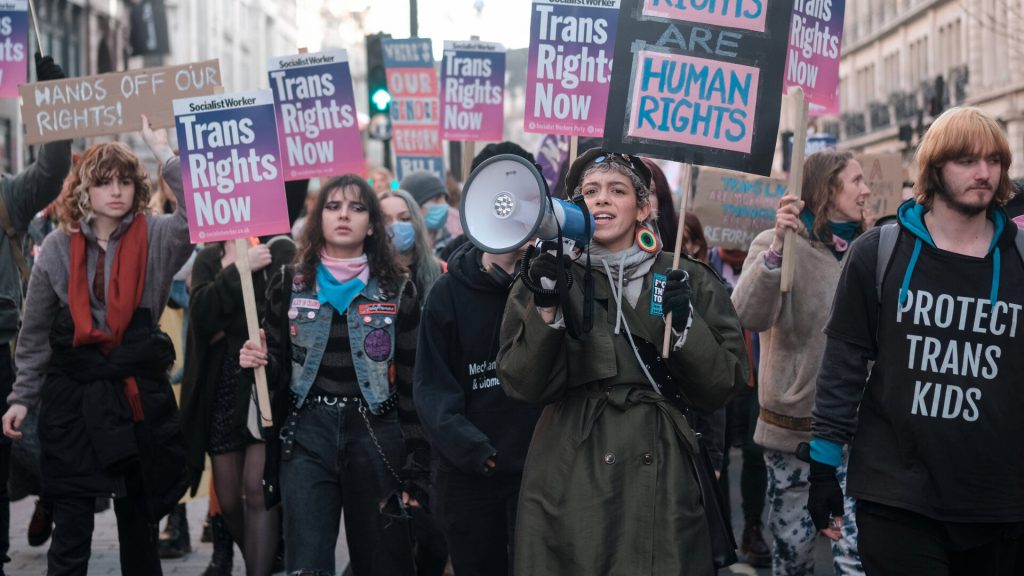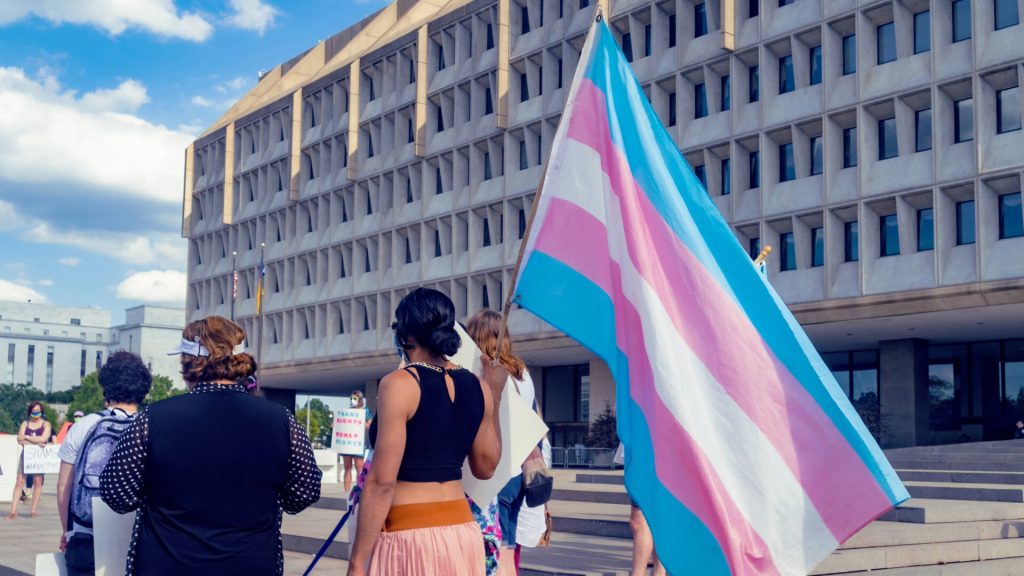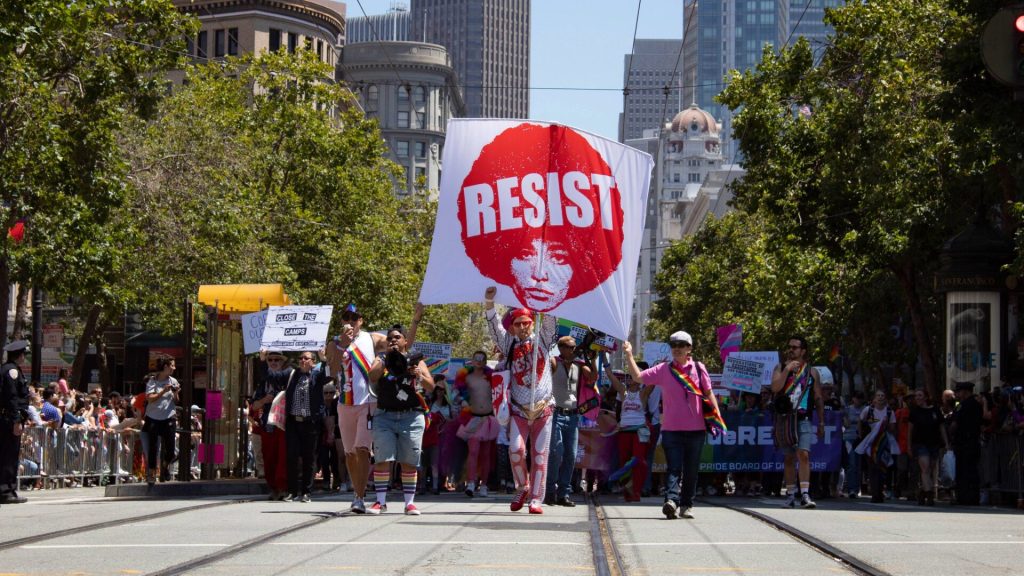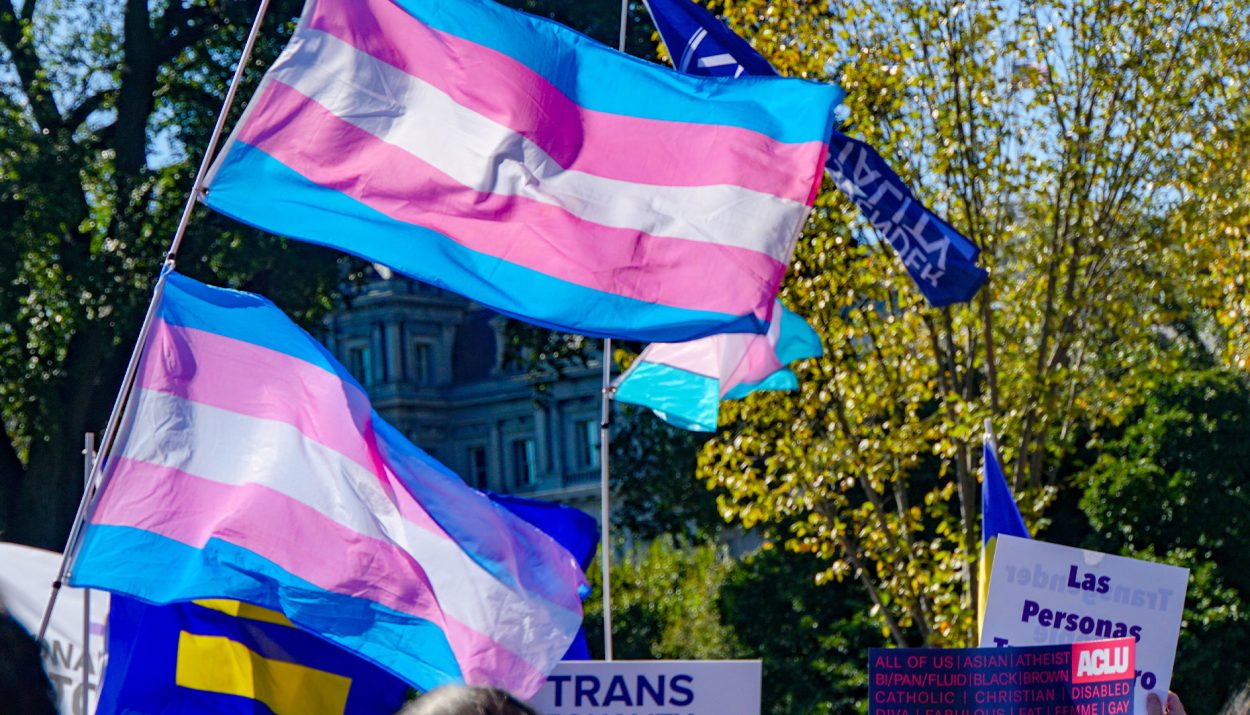Transgender issues have made headlines for various reasons over the last several years. Multiple states have attempted to pass anti-LGBTQ+ laws that specifically target trans people and those who support them, and while many of these laws have not made it beyond the idea or discussion phase, many are still frightened about what the future might hold for these particularly vulnerable Americans.
Religious Freedom and Trans Issues
The most recent area of American politics that has butted up against LGBTQ+ issues is, unsurprisingly, religious freedom. Freedom to practice faith is a deeply important value in America, one that is granted by the First Amendment and held very dearly by millions of Americans.

This freedom to practice faith in any way that someone sees fit oftentimes spills over into areas of employment, as well as hiring. Corporate policies are often structured with the personal values of the owners in mind, and this tendency has led to some conflict when it comes to employers and their relationship to their employees.
Employer and Transgender Conflict
For transgender individuals, this conflict has presented several ways. Many companies allow for freedom of expression in how you dress or what name you would like to go by, but some companies are more staunch in their consideration of gender norms, making them unfriendly employment venues for trans people.

The ability to present authentically is, of course, deeply important to trans people. But more than that is the ability to live authentically in whatever way they feel most aligned with, and for many trans people, this involves going through medical treatments that allow them to present as the gender or genders that they feel more closely in tune with.
Transgenderism and Healthcare
In this, many employers have found themselves on the business end of a sticking point. Health insurance in America is a delicate enough conversation to have without introducing social and health issues such as transgenderism, and adding that conversation only makes things harder.

Many health insurance companies will refuse to provide transgender individuals with healthcare, regardless of their employment status. For individuals who are gainfully employed with an employer-sponsored health plan, though, the conversation gets a little trickier.
Employer-Funded Programs
The fact of the matter is that while insurance companies have the ultimate say in what they will and will not pay for in America, companies who purchase health plans for their employees often have some sway over what plans will be provided as well.

For compassionate employers, this can look like greater coverage for lower negotiated deductibles for their employees. Some employers, though, use this influence to their advantage to push their own personal agenda, and this practice is one that has drawn the attention of the Biden administration.
Christian Employers Alliance’s Lawsuit
A lawsuit filed against the Biden administration by the Christian Employers Alliance made its way up to a federal district court recently, titled Christian Employers Alliance v. U.S. Equal Employment Opportunity Commission (EEOC).

The lawsuit was initially filed in October of 2021, and was a direct challenge to the Biden administration attempting to enforce “two mandates” against the CEA. The mandates being challenged by the CEA required, under provisions of the Affordable Care Act, employers to provide health insurance coverage for gender transition services in order to avoid penalties.
A Violation of Religious Rights
CEA immediately claimed that the provisions requiring coverage for gender transition services violated their religious rights under the First Amendment. As a Christian organization, the CEA claimed their sincerely held beliefs state that people are born as either a man or a woman, with no room to transition from one or the other.

Therefore, the lawsuit claimed that the financial burden that would be placed on the company through fines and other punishments for not following through with the provision of the ACA was an undue burden on their exercise of religious freedom.
Hobby Lobby: A Famous Case
This argument is not the first time that freedom of religion has been used as a reason behind an employer making choices regarding healthcare of its employees. Perhaps the most famous example of this act in America surrounds the company Hobby Lobby.

In the early 2010’s, Hobby Lobby found itself the center of an employment controversy due to the fact that its employer-sponsored health plan did not cover birth control. The plan would cover pregnancy, of course, but birth control of any form was off the table as far as coverage for its employees go.
The Supreme Court Ruled
There was significant public backlash against the company once the news of their health policy made its way out. Still, Hobby Lobby didn’t back down, and the case was ultimately brought before the Supreme Court.

The Supreme Court was asked to rule on the question of whether an employer’s “sincerely held” religious beliefs can be used as a reason to deny basic access to healthcare. They were not asked to rule on the validity of the beliefs or whether it made sense to deny said access, merely whether or not employers were allowed to do so under provisions granted by the first Amendment.
Ruling Against Reproductive Rights
The Supreme Court ultimately ruled in favor of Hobby Lobby in that decision, in a 5-4 opinion that affirmed that “sincerely held religious beliefs” were reasonable justification for disallowing birth control on health insurance plans. This was one of the first rulings against reproductive rights that has been made in the modern era, with the most famous ruling, of course, being the Dobbs decision that reversed Roe v. Wade.

This case surrounding CEA and transgender healthcare is another that falls along this same line of reasoning. Though the case wasn’t taken up to the Supreme Court yet, it cannot be denied that the federal district courts are following the precedent set by the highest court in the country when ruling on decisions such as these.
Another Blow to Bodily Autonomy
And, unfortunately for transgender individuals, the district court ruled in favor of CEA in the judgment that was released on the case this week. The federal district court ruled that the Biden administration did not have the power to force nonprofit and for-profit religious employers to violate their religious beliefs by paying for gender transition surgeries.

“All employers and healthcare providers, including those in the Christian Employers Alliance, have the constitutional protected freedom to conduct their business and render treatment in a manner consistent with their deeply held religious beliefs,” Matt Bowman, a senior counsel for Alliance Defending Freedom, said in a statement.
“Mandates that Disrespect People of Faith”
Bowman continued, “The employers we represent believe that God purposefully created humans as either male or female, and so it would violate their religious beliefs to pay for or perform life-altering medical procedures or surgeries that seek to change one’s sex.”

The statement concluded, “The court was on firm ground to stop the administration from enforcing these unlawful mandates that disrespect people of faith.”
CEA Praising the Decision
In a statement, CEA president Shannon Royce praised the decision. “We are overjoyed our members will not have to choose between the biblically based employee benefits and quality healthcare they provide, and the threat of federal enforcement and massive costs for practicing their faith.”

The lawsuit and ultimate ruling in CEA’s favor repeatedly stated that providing for gender transition care would violate the sincerely held beliefs of the company. It’s an argument that is clearly powerful, and the ruling, though disappointing for many trans activists and allies, follows a precedent that has been being set for decades.
More Rulings Likely on the Way
This is likely not the last time that trans rights, women’s rights, and reproductive rights will be challenged by those who believe that their religious beliefs are more imperative than bodily autonomy. Precedent has been set, and unfortunately for activists, it will be an uphill battle trying to work against it.

Still the backlash against the ruling has been comforting. Trans rights activists and women’s rights activists are not taking these rulings lying down, and it’s only a matter of time before one decision upsets enough people for something big to finally be done.






